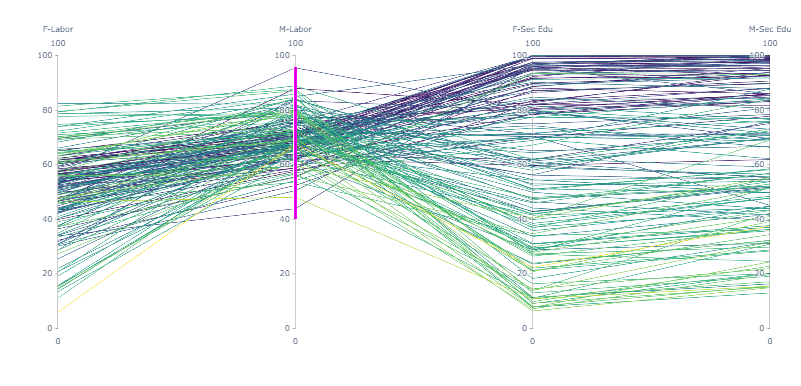Labor Force Analysis
Scatter Plot for Labor force participation Female v.s. Male
Insights
There are huge variations in terms of female labor force participation rates in Asian and African countries. The highest labor force participation rates for females exist in countries in Asia and Africa, but those countries do not have the lower gender inequality index values (conveyed in size).
Scatter Plot for Labor Force Participation Rate-Female v.s. Gap in Labor Force Participation
Insights
The bigger gap in labor force participation rate between females and males infers a lower labor force participation rate for females. There is a negative correlation. The countries with relatively the bigger gaps in labor force participation rate between females and males are in countries in Asia and Africa.
Labor Participation Force and Population with at least Secondary Education between Females and Males

Insights
TNo country in the dataset has a male labor force participation rate lower than 40, but for female, there are some countries having values lower than 40.In general, the gap between secondary education is much lower than the gap in labor force participation.Countries in purple--implying a lower score in GII, not always necessarily have a high labor force participation rate (for both female and male), but always have relatively higher populations with at least secondary education at somewhere close to 100.